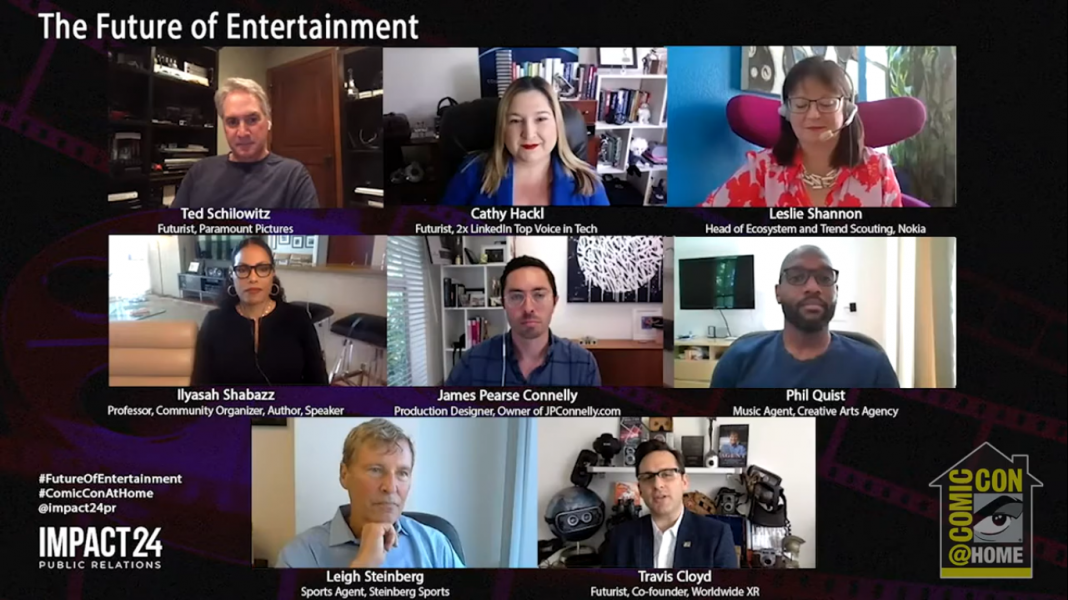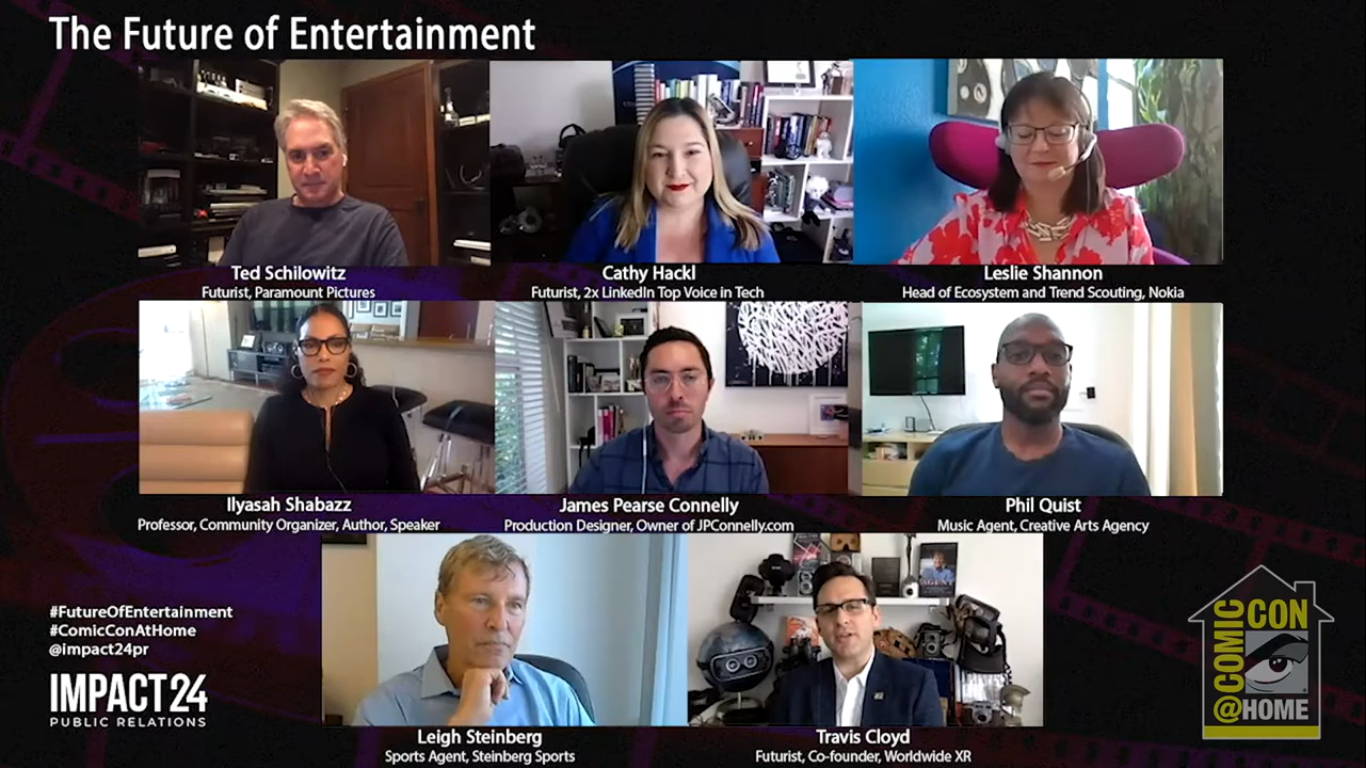The entertainment industry has been significantly expanding the past couple of years, perhaps accelerated in the age of COVID-19. Full-time “futurists” working in this field are under pressure to introduce the latest in technology to balance this major offset in adaptability. While it’s too soon to expect a leap for AR/VR styled Comic Cons to overtake the current livestreaming version, industry experts are betting other off-radar advancements are already in the works. At SDCC ‘20, a group of futurists, designers and scholars discussed how emerging technologies will shape our entertainment consumption and experience during the “Future of Entertainment” panel.
Ted Schilowitz, futurist at Paramount Pictures, said VFX used to be something that was saved for when filming was over, but it can overlap with real-time production today. Cathy Hackl, futurist and writer, felt this was a major challenge in terms of journalism about storytelling trends. She often leans towards animations to explain these kinds of technologies while writing about them.
Moving from word processing to real-time processing was a big leap for media professionals too. Leslie Shannon, head of trend scouting at Nokia, said we have come a long way from typewriters and word processors. “You can build a reality and change it later,” she added. In an age where 3D modeling and virtual reality are common in our vocabulary, ‘digital twin’ is not far behind. She recalled how a town used digital twin technology to map vomit tracks to realize it had alcohol issues, among others. “Moving data from spreadsheets and putting it in a physical world is getting big change done,” she said.
Physical spaces are not the only thing you can digitally replicate. Last April, a CGI influencer Lil Miquela debuted at Coachella and interviewed artists after a successful Instagram career as an influencer. She’s still active on Instagram with over 2.5million followers! “People are finally understanding digital humans,” said Phil Quist, music agent at Creative Artists Agency. “Livestreaming too. People weren’t used to it. Now it has become a big thing and it is going to carry on. BTS did one and sold almost a billion tickets! It is a way to build a fanbase in cities you wouldn’t go physically.” This could be a great indicator of where events like comic conventions might be headed in the future as well.
But Leigh Steinberg, sports agent at Steinberg, thinks otherwise. Sports are massively dependent on the stadium environment and real people cheering players. “How do you replicate the fans?” he asked. “Baseball is having problems.” James P. Connelly, production designer at The Masked Singer, quickly jumped in to remind everyone about laugh-tracks. Analogous with sitcoms, these tracks can be easily generated digitally and the same treatment could be applied to stadiums.
Schilowitz also predicts we will be entering an era or “screenless screens” within the next few years.
Miss any of our other SDCC 2020 coverage? Click here for much more!










Hi Sajida. Can you update my name to Cathy and not Cathay? Thanks so much.
Comments are closed.